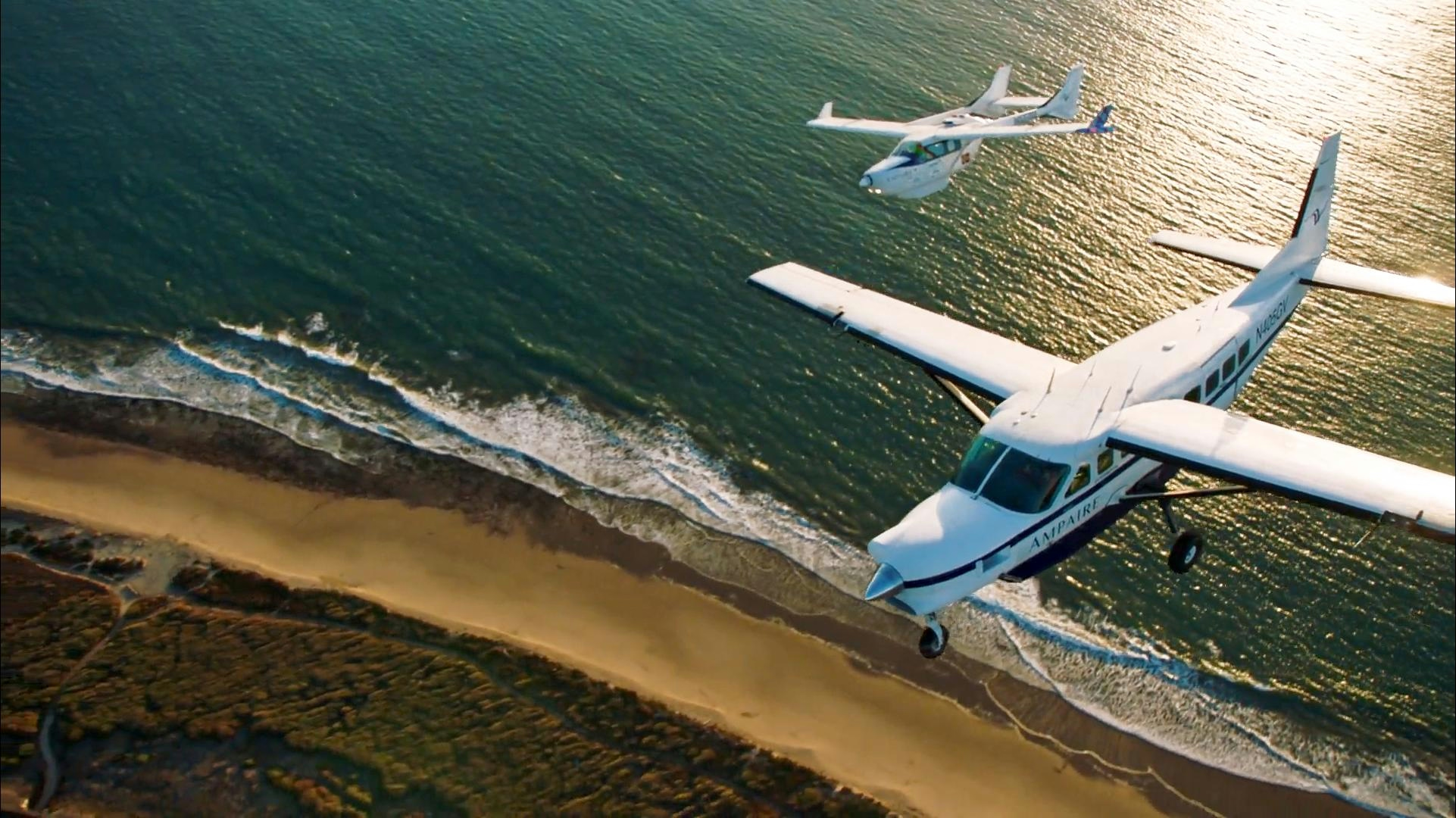エアロジニー — あなたのインテリジェントな副操縦士。
現在のトレンド
Categories
Hybrid Propulsion Engines Poised to Transform Sustainable Aviation by 2025

Hybrid Propulsion Engines Set to Transform Sustainable Aviation by 2025
The global market for hybrid propulsion aircraft engines is poised for significant growth and technological advancement by 2025. According to DataM Intelligence, the market valued at $24.3 billion in 2022 is projected to reach $42.1 billion by 2030, expanding at a compound annual growth rate (CAGR) of 7.3% between 2024 and 2031. This expansion is driven by increasing demand for fuel-efficient and low-emission aircraft, heightened investment in hybrid technologies, and supportive government policies promoting sustainable aviation.
Hybrid propulsion engines integrate traditional fuel-based systems with electric or alternative power sources to enhance efficiency, reduce emissions, and lower operational costs. These systems are being developed for a variety of aircraft, including regional, commercial, and unmanned aerial vehicles, playing a pivotal role in the aviation sector’s shift toward greener technologies.
Recent Industry Milestones
The past year has witnessed several key developments in hybrid propulsion technology. In June 2025, RTX, through its Pratt & Whitney Canada and Collins Aerospace divisions, successfully completed a full-power ground test of its hybrid-electric propulsion system. This innovative system combines a thermal engine with a megawatt-class electric motor and aims to improve fuel efficiency by 30% for regional turboprop aircraft. Plans are underway to conduct flight tests on a modified Dash 8-100, marking a critical step toward scalable hybrid drive systems for commercial aviation.
In May 2025, U.S. startup Ampaire achieved a significant regulatory milestone by receiving the Federal Aviation Administration’s (FAA) G-1 certification basis for its hybrid-electric powertrain, AMP-H570. Designed as a retrofit for Cessna Grand Caravan aircraft, this certification paves the way for commercial approval and entry into service as early as 2026. Ampaire’s system promises reductions of up to 70% in fuel consumption and emissions, alongside approximately 40% lower operating costs, offering a practical pathway for hybrid adoption in general aviation.
Competitive Landscape and Market Dynamics
The hybrid propulsion market is characterized by intense competition among major aerospace companies such as Airbus, Alakai Technologies, GKN Aerospace Services, Lockheed Martin, Safran, Siemens, Boeing, Rolls-Royce, and Raytheon Technologies. These industry leaders are actively pursuing new product launches and strategic partnerships to capitalize on emerging opportunities in sustainable aviation.
Both startups and established firms are making notable progress. Electra Aero and MagniX have secured substantial contracts and partnerships, including a $1.9 million Small Business Innovation Research (SBIR) contract from the U.S. Army and collaborations with NASA. Concurrently, competitors like ZeroAvia and Ascendance are advancing hybrid-electric and hydrogen-electric propulsion systems, reflecting a rapidly evolving landscape focused on sustainable innovation.
Challenges and Market Segmentation
Despite the promising outlook, the sector faces considerable challenges. Integrating hybrid propulsion systems with existing aircraft infrastructure involves complex technical hurdles, while regulatory and certification processes often lag behind technological progress. Industry stakeholders remain cautiously optimistic, balancing the potential benefits of sustainability with the practicalities of implementation.
The hybrid propulsion aircraft engines market is segmented by aircraft type—including general, commercial, and military—component categories such as electric motors, power generation systems, and fuel-based engines, as well as power range classifications spanning short, medium, and long distances. End-users encompass commercial airlines, government agencies, and military and defense sectors.
As the industry advances, comprehensive market analysis and close collaboration among manufacturers, regulators, and operators will be essential to unlocking the full potential of hybrid propulsion in the pursuit of sustainable aviation.

Emirates Unveils Cabin Design for New Boeing 777X

Eighteen Years On, the Airbus A380 Remains Central to a $34 Billion Airline

How a boom in luxury airline seats is slowing down jet deliveries

Navitaire Outage Attributed to Planned Maintenance

Airbus Plans Record Delivery of 870 Aircraft in 2026

DigiYatra Debuts Outside Aviation at India AI Impact Summit

Vietnam Orders Strengthen Boeing’s Commercial Outlook

Airbus Signals Uncertainty Over Future A400M Orders

JobsOhio Awards $2 Million Grant to Hartzell Propeller for Innovation Center

Collins Aerospace Tests Sidekick Autonomy Software on YFQ-42A for U.S. Air Force CCA Program
